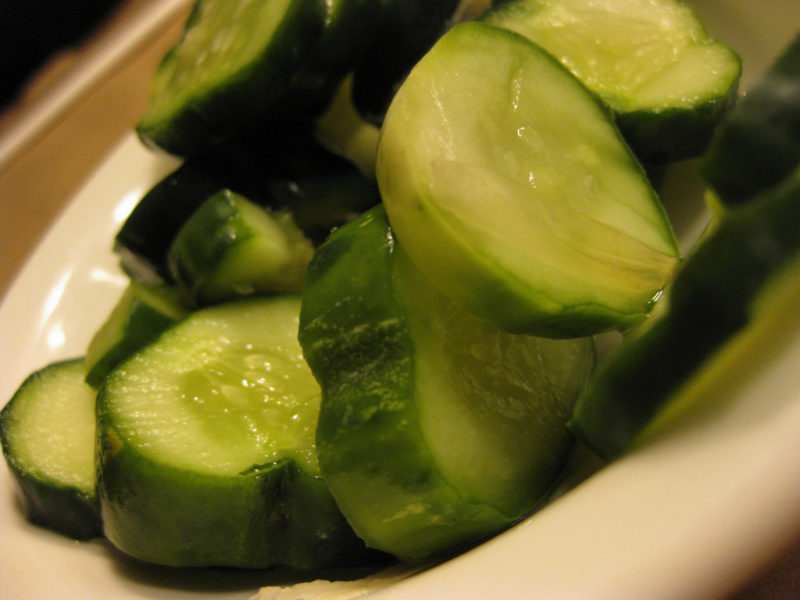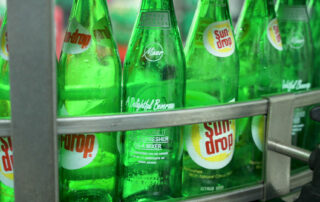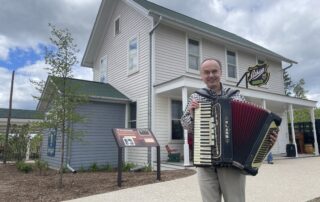There are summer jobs specific to Wisconsin–washing Friday night fish fry dishes and brandy old-fashioned tumblers at a Supper Club or herding Girl Scouts into tents at camps like Tiwaushara and U-Nah-Li-Ya. I held these jobs and others like them, but the summer job that affected me the most was one I liked least—working the assembly lines at the “Pickle Factory.”
The Pickle Factory was what everyone called the local food processing plant. It was the salvation of anyone desperate for summer work. Because many workers didn’t last a week, they were always hiring
I’d just returned from a year abroad and needed to earn money for next year’s tuition. My sister convinced me to join her at the factory. Soon the two of us were donning hairnets and heading downtown.
The Pickle Factory sat at the convergence of the Kewaunee and Green Bay and Western railroad tracks on the west side of Green Bay. We could smell the factory before we saw it; the unmistakable salty, acrid scent of pickle brine permeated the still summer air. By the end of the day, this miasma had seeped into our clothes and hair. By the end of summer, even our car smelled like the inside of a pickle jar.
My sister had a coveted ‘sit down’ position at the capping machine. I stood with the neophytes at the assembly lines. We’d grab Baby Dills from one conveyor belt and slide them into jars going by on another. Some days we canned spears. Our fingers artfully arranged quartered cucumbers along the outside edge of jars in a motion not unlike that used by my grandmother to seal piecrusts. To this day, I can’t see jars of spears without thinking of the women behind this under-appreciated handiwork.
The work was loud and hot and brain-numbingly monotonous. We counted down the minutes and the seconds until we’d return to college.
Although our jobs were boring, they weren’t without epiphanies. For starters, we learned that where food is concerned, it’s best to avoid the off-brands and it’s always advisable to forego the relish. We also learned that anarchy is alive and well in America. We didn’t do it, but we didn’t complain when other workers surreptitiously dropped items into the gears of expensive machines giving us a welcome ten-minute break while mechanics worked.
The most poignant lesson occurred at the end of the summer. A celebratory buzz around the brine vat caught our attention. It involved the year-round workers, women who looked as tired and old as the neighborhoods they walked from. Although we all ate lunch at the same picnic tables, these older workers and we students maintained a caste-like distance. On this particular day, two of the women were told they could come to work a half an hour later each morning. We watched as high fives were passed around during the smoking break and wondered how these women had gotten so lucky. Later we learned that this ½-hour hiatus was the reward for thirty years of work on the assembly line, a fate incomprehensible to us
For the first time, we realized the disparity of stories being played out in close proximity and were grateful for more than our paychecks. A few days later, we returned to our classes and college friends and all the opportunities that would come our way. I still think of those women occasionally; the lessons I learned that summer stayed with me long after the smell of pickle brine left my hair and longer than many of the lessons learned at school.







